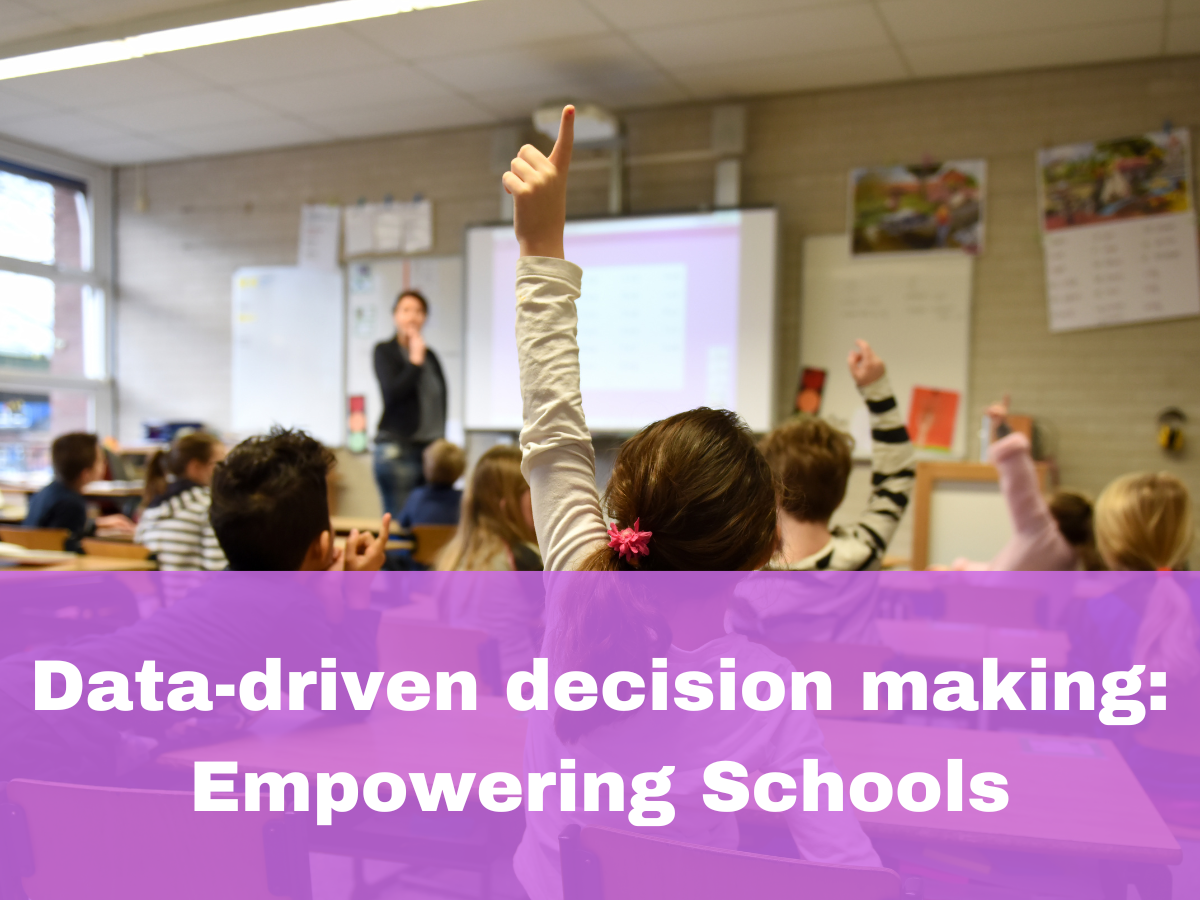Data-driven decision making: Empowering Schools
By~ Scholar Planet
Created At: 09 Jun, 2023

In today's fast-paced and
technology-driven world, data has become an indispensable resource for
organizations across various sectors. The education sector is no exception, as
schools increasingly recognize the power of data-driven decision making to
drive improvements in student achievement, teacher effectiveness, and overall
school performance. By harnessing the potential of data, schools can make
informed decisions that have a profound impact on the educational outcomes of
their students. This article explores the concept of data-driven decision
making and how it empowers schools.
What is data-driven decision
making?
Data-driven decision making
refers to the process of using data and analytics to guide and support decision
making in various aspects of school management and instruction. It involves
collecting, analysing, and interpreting relevant data to gain insights and
inform decision-making processes. This data can include student assessments,
attendance records, behaviour logs, teacher evaluations, and various other
metrics that provide a comprehensive view of the educational landscape.
Empowering schools through
data-driven decision making
1. Identifying areas of
improvement: Data-driven decision making enables schools to identify
specific areas where improvement is needed. By analysing student performance
data, schools can identify patterns, trends, and achievement gaps. This
information helps educators develop targeted interventions and tailor
instructional strategies to meet the diverse needs of their students. It
empowers schools to allocate resources and prioritize interventions where they
will have the greatest impact.
2. Monitoring student
progress: Data-driven decision making allows schools to closely monitor
student progress over time. By tracking individual student data, schools can
identify students who are falling behind or excelling, enabling timely
interventions or enrichment opportunities. This personalized approach ensures
that no student is left behind and that all students receive the support they
need to succeed.
3. Enhancing teaching
practices: Data-driven decision making provides valuable insights into
teaching practices. By analysing data from teacher evaluations, classroom
observations, and student feedback, schools can identify effective
instructional strategies and areas for professional development. This
information helps schools provide targeted support to teachers, enabling them
to continuously improve their practice and enhance student learning outcomes.
4. Resource allocation:
Schools often face resource constraints, and data-driven decision making helps
them optimize resource allocation. By analysing data on student needs, schools
can allocate resources strategically, ensuring that interventions, support
services, and instructional materials are effectively deployed. This approach
maximizes the impact of available resources and ensures that they are directed
towards the areas of greatest need.
Data-driven decision making is
revolutionizing the way schools operate. By embracing data-driven decision
making, schools can truly empower themselves to provide high-quality education
and unlock the full potential of their students.
We at Scholar Planet understand
the importance of data driven decision making for schools and its impact on a
child’s future. Hence, we have created dashboards where schools can monitor the
performance of their students and guide them as per their capabilities.
Download
our app here: https://gcapworld.com/download-scholarplanet-app.html
